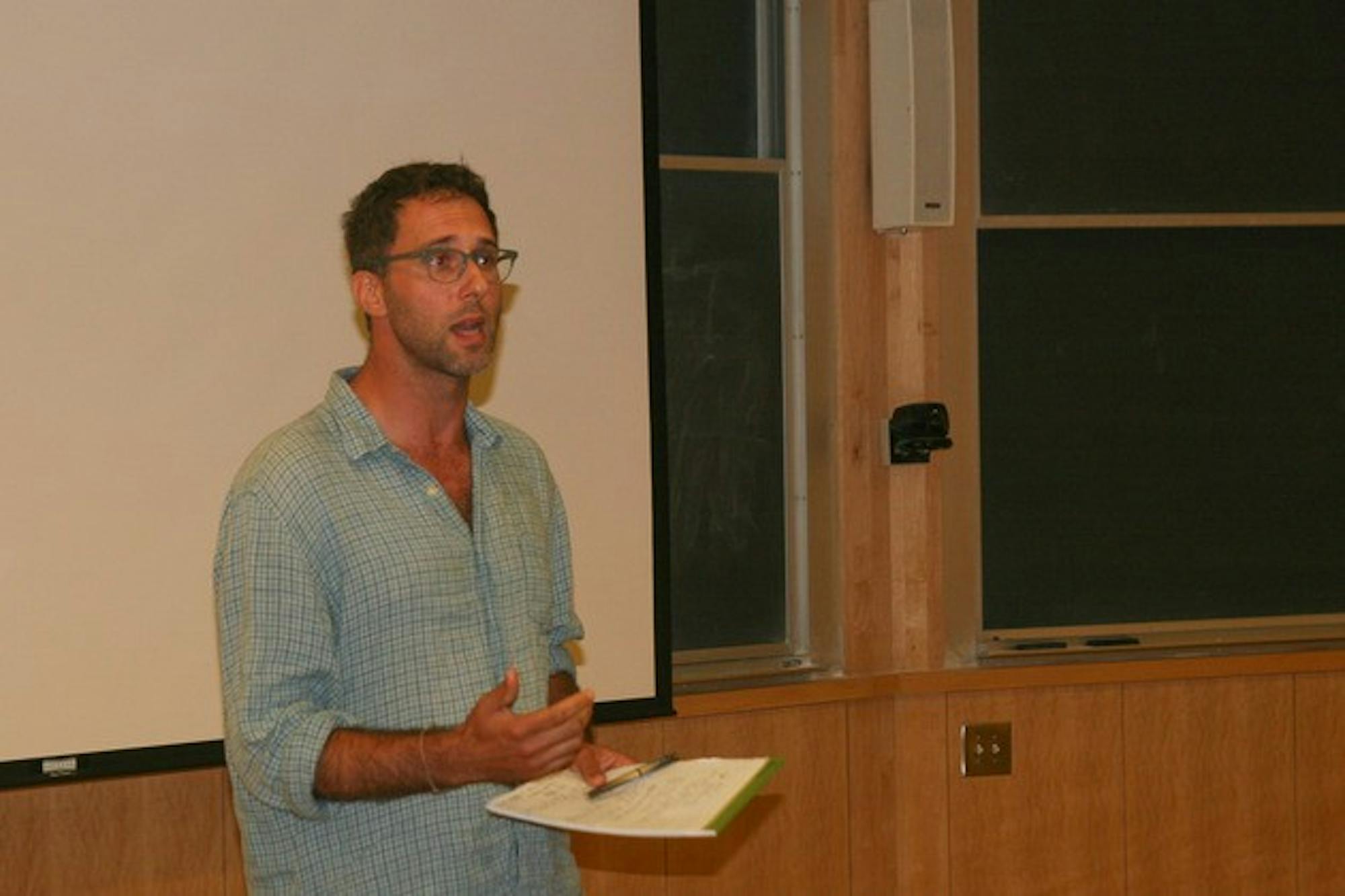Access to sustainable and locally grown foods is important, yet many consumers have difficulty affording the higher prices associated with these products. Although the slow food movement, an international effort created in response to the growth of industrial fast food, has proposed solutions, Viertel said none of these are ideal.
His interest in food began when Viertel, then a Harvard philosophy student, realized he had never worked with his hands and decided to spend a year as an agricultural laborer in rural Italy. Although his advisor was strongly opposed to the plan, Viertel soon found someone who understood his desire for hands-on experience.
The encounter occurred on a rural Italian road, when Viertel was hitchhiking and found himself being driven by a man in a red Fiat. The two connected despite their different backgrounds and languages, and the driver soon reached over to take Viertel's hand.
"He looked at my hand for a long time and he said, You need to go and touch the world,'" Viertel said. "After that, I stopped wearing gloves and started working really hard."
To combine his newfound love of food with his interests in environmentalism and social justice, Viertel started his own farm after graduating from college. Despite receiving praise from chefs and local customers, Viertel said he was bothered by the high prices he had to charge for his food.
Lower-income passersby would not stop at his stand, and Viertel's meager salary would have prohibited him from buying his own produce. He began to consider questions of access when it comes to choosing between industrial and locally grown food.
"It should be easier to feed kids fruit than Fruit Loops," he said. "But that's not the case most of the time."
Viertel compared food systems to a democracy, calling on people to "vote with your forks." This democracy is imperfect, however, since the industrialized fast food system is the only option for many consumers.
He added that all food has a story about how workers and animals were treated during its creation.
"Most of the time, that story is not a story you'd feel good about, it would make you feel sick," he said. "But there's another kind of food."
To make themselves realize the importance of responsibly grown food, Viertel said people should cook and share meals together. This experience acts as a "gateway drug" that increases interest in food justice, he said.
Although there are debates about whether people should eat vegan, vegetarian, local or organic meals, Viertel said the most important factor in determining how to eat is relying on personal values. Any decision to reexamine food choices is an improvement, he said, though this is not a complete solution.
"There's this uniquely American notion that we can shop our way out of our problems, and we're finding it might not be adequate," he said.
During his time at Slow Food USA, Viertel noticed that policy change was discouragingly slow and temporary. He added that he changed the organization's mission, which was previously about preserving traditional food culture, to focus more on social justice.
After facing accusations of "mission drift" and receiving angry letters, Viertel said he discovered that people in power felt threatened by the notion of fairness. Pointing to the connection between food, class and race, he added that the issue was broader than many people think.
Viertel left the organization in 2012, choosing instead to focus on working with his hands once more. He said he has calluses again, and feels much like he did when he was hitchhiking through the Italian countryside 15 years ago.
"I feel like I'm a weary traveler on a road to justice, but I don't really know that road," he said.
Viertel recounted experiences working with people from local organizers on the South side of Chicago to migrant workers in Immokalee, Fla. When asked, however, he expressed uncertainty about the slow foods movement's direction.
Corporations praised for health and sustainability efforts are often "nibbling around the edges" of deeper problems, yet are not receiving enough scrutiny, he said. Viertel asked individuals who purchase sustainable food not to absolve themselves of all responsibility.
In an interview, Viertel said that college students should take small actions to increase their involvement, such as volunteering at the organic farm or cooking meals together.
"I personally think a dinner party beats a frat party," he said.
Viertel added that student activism can influence a school's administration and culture, which can lead to changes like a reduced carbon footprint.
Rebecca Jacobson '15 said she enjoyed Viertel's focus on combining responsibility with pleasure, which can be applied to aspects of life other than food.
Sustainability director Rosi Kerr, a longtime associate of Viertel, said she appreciated his passion and detailed knowledge, and was most struck by his willingness to acknowledge that not all of the solutions have been found.
"I think a lot of people come to people like Josh for answers, and it was invigorating to hear more questions than answers," Kerr said.
The lecture, titled "Slow Food and Social Justice," was hosted by the Ethics Institute and the philosophy department.




